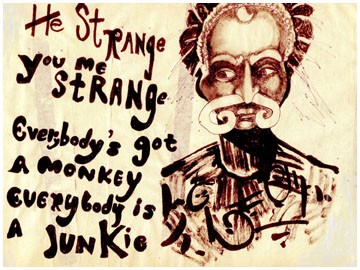Repression. Pain. Anguish. The screams of the forgotten bellow amidst the lines’s of Syliva Plath’s poem “Daddy.” Plath depicts the totalitarian conformity of femininity throughout her work. Her father figure was simply that; a figure. A statue of manhood in command of his home. She recalls “so I never could tell where you put your foot, your root, I never could talk to you. The tongue stuck in my jaw”(Plath). Plath feared her loathsome father. He did not respect her as a person. She was controlled by the pressures of societal expectations. Her depiction of the dominance over femininity is quite accurate and enlightening. In no way is her portrayal offensive in regard to her mention of the Nazi Regime. It was simply a metaphor of epic proportions. She so desired to depict the fallacy of the prominence of man. All must be equal. All must be free.
Syliva Plath not only depicts the injustice of the American man, but also his sinful nature. After being married and separated, Plath writes “the vampire who said he was you and drank my blood for a year, seven years, if you want to know. Daddy, you can lie back now. There’s a stake in your fat black heart”(Plath). Men not only desired unparalleled control, but also indulged in gluttony. Man held the reign guiding the government into the bowels of sexism and subjugation. He desired to “feed” off the woman. Take all she could give for his own. Plath’s illusion of the vampiric, parasitic nature of man simply evokes a necessity for change in regiment. Was Plath just in her metaphor of the Nazi Regime? Does she accurately depict the nature of society during her exploration into the fallacy of the male role?


